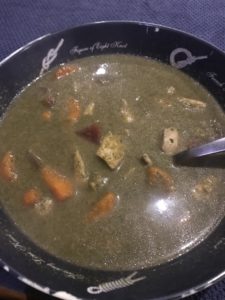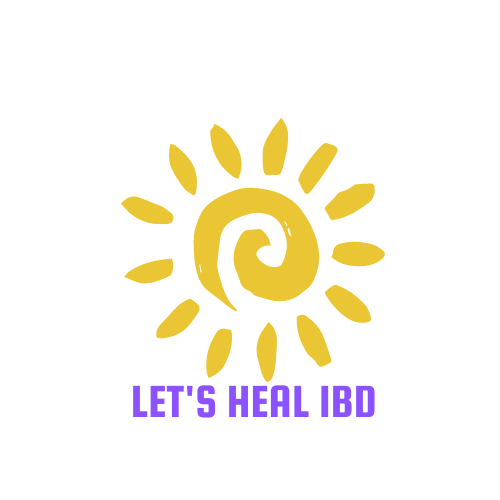Tips for Managing an IBD Flare
Here are some tips for managing an IBD flare up that I have learnt over the past 10 years of dealing with IBD.
An IBD flare can be physically painful, and mentally stressful. But there are some tips and tricks that I have found to help ease some of the stresses of an IBD flare.
Some of these include:
- Focusing on your diet
- Look for new Healing Methods to try
- Asking for help
- Resting as much as possible
- Focusing on things you enjoy
- Mental health tips
Focusing on Diet

There is so much advice out there on what you should and should not eat with an IBD flare. Although each person is unique and needs to listen to their own body, there are some tips that have worked for me.
Eliminate any ultra processed foods completely. Processed foods are not safe for anyone to eat. Especially for those of us who have inflammation in our guts.
These foods include processed, sugary snacks. Fried foods, processed meats, and ingredients that contain long lists of additives, emulsifiers, and preservatives. They are not going to help you heal your body in any way.
The single best product I have found for reducing symptoms of a flare is Jini Patel’s Elemental Gold/Absorb Plus semi-elemental shakes. Doing a 7 week elemental diet has pulled me out of a flare before. It is a tough commitment, but the shakes can immediately relieve painful symptoms of IBD.
If you do not have access to elemental shakes for whatever reason. I feel that the IBD-AID diet is the next best choice. The IBD AID diet is a great, easy to follow diet. Phase 1 of the diet is specifically designed for people in an IBD flare. It focuses on texture, fiber content, and highly nutritious foods.
For example, my go-to food in a flare is my Healing Blended Soup. I also find bananas and papaya to be very safe foods for me. You want to focus on foods that are highly nutritious, and easy to digest.
Other diets that may work for some people include the SCD diet, low residue diet, and carnivore diet. Unfortunately you may need to try some trial and error to find the best IBD diet for you.
Look For New Healing Methods to Try
This one has been so important for me. Feeling like I am making headway in my healing journey gives me hope that one day I will heal from IBD. Even in the setback of an IBD flare. I have always believed deep in my soul that I will heal myself one day. I will always be pursuing new healing techniques to help me feel better.
Spend some time researching. Join Facebook support groups, and learn what others have done. Read scientific journals on IBD. Read books written for IBD patients. Listen to podcasts on self healing, and find what resonates with you. I recommend the podcast Against the Grain by Samir Kakodkar.
Learning about IBD healing is empowering. Taking responsibility for your own health is a crucial aspect of healing yourself. Most likely, no one else is going to be this for you.
Asking For Help
When you are sick, do not be afraid to ask for help. Explain to other people in your life what is happening to you. Accept any help that is offered.
It is important to have a support system in place for IBD. Don’t be afraid to ask these people to help you. Ask them to cook you meals that follow your selected diet. Let them pick up some of the slack around the household. Let them take care of you as much as you feel comfortable with.
Allowing others to help you, will give you more time to rest, and help you heal faster.
Resting as Much as Possible
When you are sick, rest is key. Your body needs time to recover and heal.
Prioritizing rest is essential for your healing. And this means making an effort to participate in active resting.
This doesn’t mean sitting on your phone and scrolling Tik Tok. It means taking active steps to rest your body and mind. Active rest ideas include sleeping, meditating, walking outside, yoga, or light movement that you enjoy.
Resting also includes taking breaks when doing necessary activities. This could mean sitting down for 10 minutes halfway through cooking dinner. Or resting on a bench when doing your grocery shopping. Or having a nap halfway through the day.
Focusing on Things You Enjoy
This one can be super important. Even though you are sick, it does not mean that your entire life has to stop. Although you will need to prioritize rest, and respecting your body. It is so important to also prioritize doing the things that you love.
This could include socializing with friends. But planning activities that are easy for you to do, and bringing your own food. This could include taking walks in nature. But choosing routes that have resting spots, toilets nearby, and level walking tracks.
This could include swimming in the ocean, lake, or pool. Going away for the weekend. Or reading a book.
I would prioritize getting outside as much as you are able to. It may feel easier to lay in bed, or on the couch. But over time this may have negative effects on your mental health.
If you are too weak for outdoor activities. Set a chair up outside (or ask someone else to do it for you). And sit in the sun outside. The natural vitamin D will do wonders for you. Feeling the fresh air, and looking at your surroundings will be so good for your overall well being.
Make Yourself Comfortable

This includes being comfortable mentally and physically.
Mental comfort can include avoiding people you find draining. You may find that your patience and mood are slightly worse during a flare. Try to avoid things and people that stress you out. Maybe it’s not the best time to visit your difficult mother-in-law. Or spend time with a friend that you secretly can’t stand.
Making yourself physically comfortable includes many things. Wearing loose fitting, comfortable clothing. Using essential oils that you find relaxing. Using a hot water bottle. Drinking your favorite cup of healing tea, cuddled into a warm blanket.
Mental Health
Although it is perfectly healthy and normal to mourn your health setbacks. It is important to not let the mental burdens of living with a disease take over your life. Self pity is normal, but I have found that it can make my IBD symptoms worse.
Ask your support system to help you with this. For example, when I am in a flare, my mental health suffers greatly. I tell my partner that I want to lay in bed and be sad for a few hours in the morning, if I need to. But to gently force me to get out of bed around 10am.
This is where empowering yourself through knowledge can help. Learn from each of your IBD flares. Look into alternative methods of healing. And focus on what works, so that you can get back to your optimum health as soon as possible.
Force yourself to do things that you enjoy. Even if you don’t want to. Or even if you do not get the same level of pleasure from them that you used to. They will still make you feel better than wallowing in self pity and sadness.
Reach out to a mental health specialist. I think anyone who has IBD has some form of trauma from it. Food fears, health fears, loss of control of your life. A mental health specialist may be able to help you manage these fears. And provide some healthy coping mechanisms.
An IBD flare can be difficult to manage. But using the above tips and tricks may help you to suffer less. And heal faster. Focus on the aspects that you can control. And make tangible improvements that will make you feel better.
Taking responsibility for as much of your health as you can is so empowering. And it is truly healing on so many levels.

